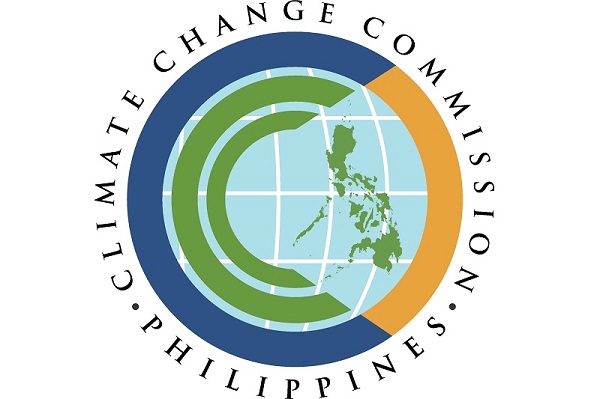
June 10, 2024 Monday

By: Paul Angelo Juan, Jean Paula Regulano, and Jerome Ilagan
BONN, GERMANY, 10 June 2024 — In the face of the intensifying effects of climate change, countries are confronted with differentiated and disproportionate impacts. Developing countries contributing the least to global greenhouse gas emissions are those most affected, vulnerable and at-risk to climate change. With limited resources, developing countries face difficulty in immediately addressing the multifaceted issues posed by climate change.
These challenges strengthen the resolve of developing countries like the Philippines to participate in international climate negotiations such as the Conference of Parties (COP) of the United Nations Framework Convention on Climate Change (UNFCCC).
The Philippines needs to ensure our voices are heard and our unique national circumstances are considered in global roadmaps to climate resilience, low-carbon, and sustainable development.
The UNFCCC is a platform for developed and developing countries to tackle actions that would address the climate crisis. Since the birth of UNFCCC in 1995, and the first COP in the same year, countries have been engaged in an intense yet nuanced negotiation process to address the climate crisis, develop global norms, frameworks and programs to bring down solutions tailored to national circumstances that will directly benefit the communities.
Every year, the COP and the Subsidiary Bodies (SB) of the UNFCCC meet twice, in June and in November, to stocktake progress in critical climate discussions such as the provision of support for developing countries, in the form of climate finance, technology development and transfer, and capacity building. This is the crux of the negotiations process, with developing countries facing the need to safeguard the decisions across negotiation workstreams and between sessions.
As decisions shape the dynamics of support modalities, the inclusive process of “asserting climate justice and equity, and historical responsibilities” is a product of continuing coordination with various entities within or outside of government in terms of legal rights, policy directions, data on financial resources, including regard for vulnerable sectors.
The stakes are high for the Philippines. The UNFCCC and the Paris Agreement are cornerstones of possible solutions to augment limited domestic resources to fund current needs, albeit still at a limited capacity. The need to adapt to increasingly threatening scenarios due to climate impact drivers such as extreme precipitation, sea level rise, extreme temperature, is costly, and amounts to addressing existential threats.
From its membership to the UNFCCC in 1995, the Philippines has achieved a myriad of successes in the international climate negotiation – from its significant contributions in developing solutions packages such as the Green Climate Fund, to the most recent inclusion in the agenda item of loss and damage to the adoption of the Loss and Damage Fund and Funding Arrangements.
In COP28 last year, the Philippines was one of the last few countries standing in the deliberation of the first Global Stocktake outcomes which informs countries of course- correcting measures towards resilience and sustainable development.
Under the leadership of President Ferdinand R. Marcos, Jr., the Philippines’ participation in climate talks is anchored on its Nationally Determined Contribution (NDC), the first National Adaptation Plan (NAP) completed only under the Marcos administration, and the groundbreaking 2023-2028 Philippine Development Plan, which for the first time has a dedicated chapter on climate change and disaster resilience.
Advancements in domestic policies and measures increases the number of workstreams participated by the Philippines, which now includes: adaptation, mitigation, loss and damage, climate finance, technology, capacity building, global stocktake, just transition, gender, local communities and indigenous peoples, agriculture, response measures, and transparency.
The Philippines works to ensure that it protects its space at the negotiating table. It amplifies the voices of developing nations and, with its bridging abilities, allows the opportunity to draw stakeholders to the center and restore trust and confidence in the multilateral process.
Under the Marcos Administration, the Philippines is now occupying historic seats in constituted bodies, such as the Adaptation Committee, the Paris Committee on Capacity Building, the Loss and Damage Fund Transitional Committee and the Fund Board. The Philippines also has its seat in the Green Climate Fund Board.
The point of no return looks at the threshold of 2050 net zero to face either a livable earth, or extinction of the human race. Our next challenge is to increase the tribe of innovators, climate scientists, climate advocates and champions, so that the Philippine efforts of today will inform and be sustained through to the next generation.
And so we negotiate to champion not just what the Philippines deserves as a matter of climate justice. We know that smaller countries or similarly situated economies learn from us, and our state of action in facing with resolve the climate crisis.
SB and COP negotiations place the Philippines, among other developing countries, at the center of climate discussions aimed at securing lives, livelihoods, and the future of people and communities, with no one left behind.
With outcomes embedded in national policies, action plans, and investment strategies, the Philippines is in a better strategic global position to achieve its objective of a climate-smart and climate-resilient nation – Bagong Pilipinas, Isang Bagong Bansang Matatag.
For more information on the CCC’s climate mainstreaming activities, visit www.climate.gov.ph and www.facebook.com/CCCPhl.